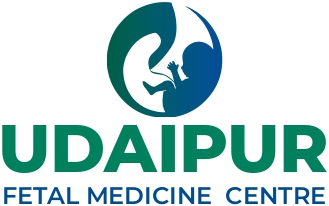Navigating the world of prenatal care can seem daunting. However, understanding key tests, such as the nasal bone scan in pregnancy, helps ensure the best outcomes for your little one. These scans provide essential insights into your baby’s health, and comprehending their purpose and benefits can put your mind at ease.
Introduction to Nasal Bone Scans
A nasal bone scan in pregnancy is a vital diagnostic tool used during prenatal check-ups. Historically, this scan became significant once researchers discovered its potential in spotting chromosomal issues early. Mainly, these scans help in detecting developmental problems, providing a clearer picture of the baby’s progress.
The importance of nasal bone measurement in pregnancy cannot be overstated. Doctors utilize this scan to identify conditions such as Down’s Syndrome and other chromosomal abnormalities. Conducting scans at crucial stages, like the 12-week and 20-week scans, helps track fetal health and development patterns effectively.
Now, you’re probably wondering just how this procedure unfolds. Well, during the nasal bone scan procedure pregnancy, a healthcare provider uses ultrasound technology. This process is non-invasive and forms part of regular prenatal care. Knowing what happens during these scans can lessen anxiety and make expectant parents feel more prepared.
Understanding the significance of these scans during the first trimester nasal bone scan ensures timely detection of any issues. This knowledge plays a central role in making informed decisions about the care options available for your baby. Overall, the importance of nasal bone scan in pregnancy lies in enhancing the safety and health prospects of the unborn child.
Key Reasons for Nasal Bone Scans During Pregnancy
So, why are these scans high on the list of important prenatal tests? Well, here are the reasons:
- Detecting Chromosomal Abnormalities: The ability to catch potential issues early is what makes nasal bone scan pregnancy results critical. This applies especially to conditions like Down’s Syndrome. Early detection means parents can be better informed and prepared.
- Monitoring Development: Scans also tell doctors about the overall development of the baby. This helps track if the fetus is growing healthily and on track.
- Providing Peace of Mind: Knowing more about your baby’s health through these scans can lower stress levels. Clarity about nasal bone absent 12 week scan findings can give families the knowledge needed to plan ahead.
In India, for instance, periodic nasal bone scan in pregnancy has helped doctors identify many cases of no nasal bone 12 week scan issues, highlighting the necessity of this practice.
Statistics from various studies illustrate how vital these checks are. According to a large study, detecting a nasal bone absent 12 week scan can indicate higher risks for chromosomal abnormalities. Therefore, early diagnosis is crucial.
Having a nasal bone scan in pregnancy 20 weeks allows medical teams to compare growth patterns effectively. This aids in confirming the health of the growing fetus. These insights reinforce why such scans are indispensable.
Advantages and Challenges in Nasal Bone Scans
The benefits of relying on nasal bone scan in pregnancy are clear. They provide crucial early detection with no invasive procedures needed:
- Safety First: Unlike other tests, the nasal bone scan procedure pregnancy is non-invasive and safe for both mother and baby.
- Early Action: Discovering potential issues earlier allows doctors and parents to take proactive measures. This greatly improves the prenatal care strategies that can be implemented.
However, while these benefits are undeniable, there are some hurdles to acknowledge:
- Interpretation Challenges: The visibility of the nasal bone varies among different populations. This can sometimes lead to difficulty in interpreting nasal bone scan pregnancy results.
- Misconceptions and Education Needs: There’s a range of knowledge levels about nasal bone measurement in pregnancy. Educating expectant parents and the public can help clear misunderstandings about what these scans can realistically predict.
Addressing these concerns helps improve the impact of the importance of nasal bone scan in pregnancy. This includes understanding the nuances of different populations and social perceptions. Educating the public about the value these scans provide is a step toward better prenatal health practices.
Concluding Thoughts and Future Implications
The role of the nasal bone scan in pregnancy is truly invaluable. For expectant parents, these scans bring insights into their baby’s health that can guide decisions. The benefits, such as early detection and their non-invasive nature, underscore that reassurance.
Looking ahead, advancements in prenatal testing technology promise even greater strides. Improved techniques could mean even better nasal bone measurement in pregnancy, yielding comprehensive insights into fetal health. These developments signal a future where prenatal care is both more precise and accessible, enhancing healthcare for parents and babies alike.
In summary, understanding the nasal bone scan in pregnancy brings us closer to ensuring the well-being of our unborn children, nurturing them right from those early, crucial stages.

